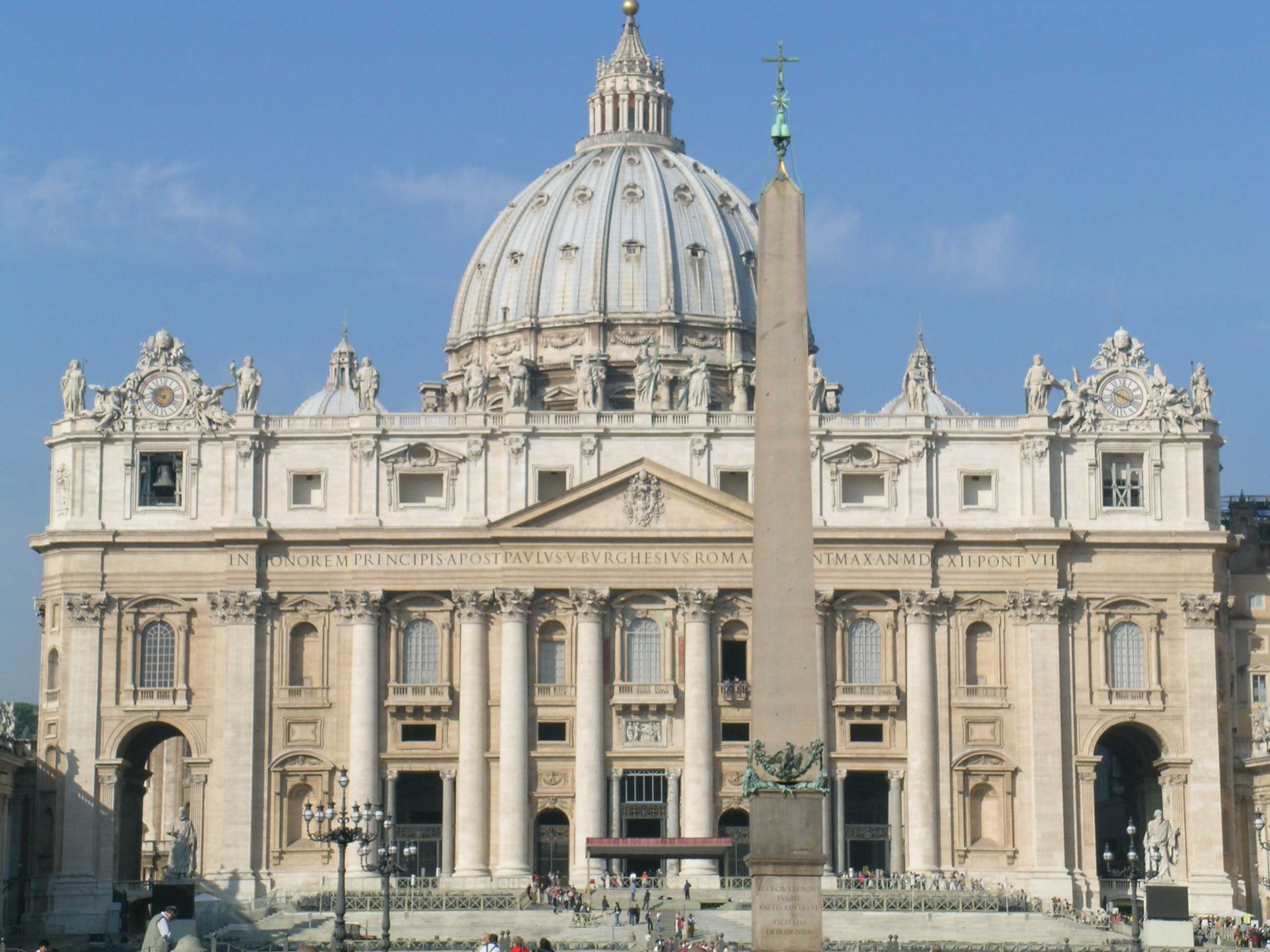(pro aliquibus locis)
 The devotion commonly known as that of the Miraculous Medal owes its origin to St Catherine Labore, a member of the Daughters of Charity of St. Vincent de Paul, to whom the Blessed Virgin Mary appeared three separate times in the year 1830, at the mother-house of the community at Paris. On the second occasion, Sister Catherine records that the Blessed Virgin appeared as if standing on a globe, and bearing a globe in her hands. As if from rings set with precious stones dazzling rays of light were emitted from her fingers. These, she said, were symbols of the graces which would be bestowed on all who asked for them. Sister Catherine adds that around the figure appeared an oval frame bearing in golden letters the words "O Mary, conceived without sin, pray for us who have recourse to thee"; on the back appeared the letter M, surmounted by a cross, with a crossbar beneath it, and under all the Sacred Hearts of Jesus and Mary, the former surrounded by a crown of thorns, and the latter pierced by a sword. (Catholic Encyclopaedia)
The devotion commonly known as that of the Miraculous Medal owes its origin to St Catherine Labore, a member of the Daughters of Charity of St. Vincent de Paul, to whom the Blessed Virgin Mary appeared three separate times in the year 1830, at the mother-house of the community at Paris. On the second occasion, Sister Catherine records that the Blessed Virgin appeared as if standing on a globe, and bearing a globe in her hands. As if from rings set with precious stones dazzling rays of light were emitted from her fingers. These, she said, were symbols of the graces which would be bestowed on all who asked for them. Sister Catherine adds that around the figure appeared an oval frame bearing in golden letters the words "O Mary, conceived without sin, pray for us who have recourse to thee"; on the back appeared the letter M, surmounted by a cross, with a crossbar beneath it, and under all the Sacred Hearts of Jesus and Mary, the former surrounded by a crown of thorns, and the latter pierced by a sword. (Catholic Encyclopaedia)
Erit quasi signum in manu tua, et quasi monuméntum ante óculos tuos, et ut lex Dómini semper sit in ore tuo. * Confitémini Dómino et invocáte nomen ejus: annuntiáte inter gentes ópera ejus.
It shall be a sign in thy hand, and as a memorial before thine eyes, and that the law of the Lord be always in thy mouth. * O give thanks unto the Lord, and call upon His name: tell forth His deeds among the nations.
(Exodus 13:9 and Psalm 104:1 from the Introit of Mass)
 Dómine Jesu Christe, qui beatíssimam Vírginem Maríam, Matrem tuam, ab orígine immaculátam innúmeris miráculis claréscere voluísti: concéde; ut, ejúsdem patrocínium semper implorántes, gáudia consequámur aetérna.
Dómine Jesu Christe, qui beatíssimam Vírginem Maríam, Matrem tuam, ab orígine immaculátam innúmeris miráculis claréscere voluísti: concéde; ut, ejúsdem patrocínium semper implorántes, gáudia consequámur aetérna.
O Lord Jesus Christ, Who hast willed that the most blessed Virgin Mary, Thy mother, sinless from the first moment of her conception, should be glorified by countless miracles: grant that we, who never cease from imploring her patronage, may attain in the end to eternal happiness.
(Collect)
From the Catholic Encyclopaedia on the Miraculous Medal: http://www.newadvent.org/cathen/10115a.htm









![[Our Lady of Divine Providence]](http://campus.udayton.edu/mary/images/pue2.jpg) Sources:
Sources: 








